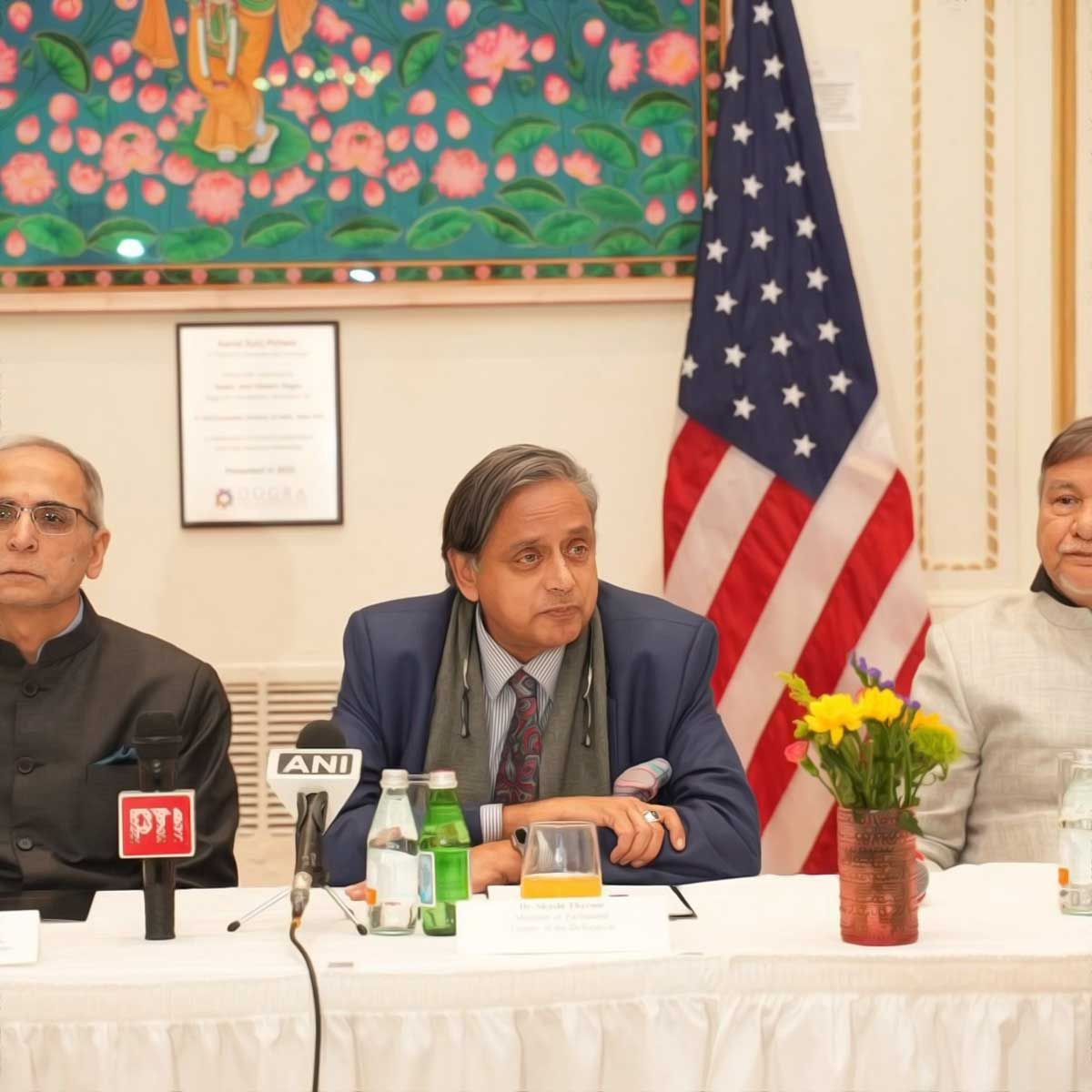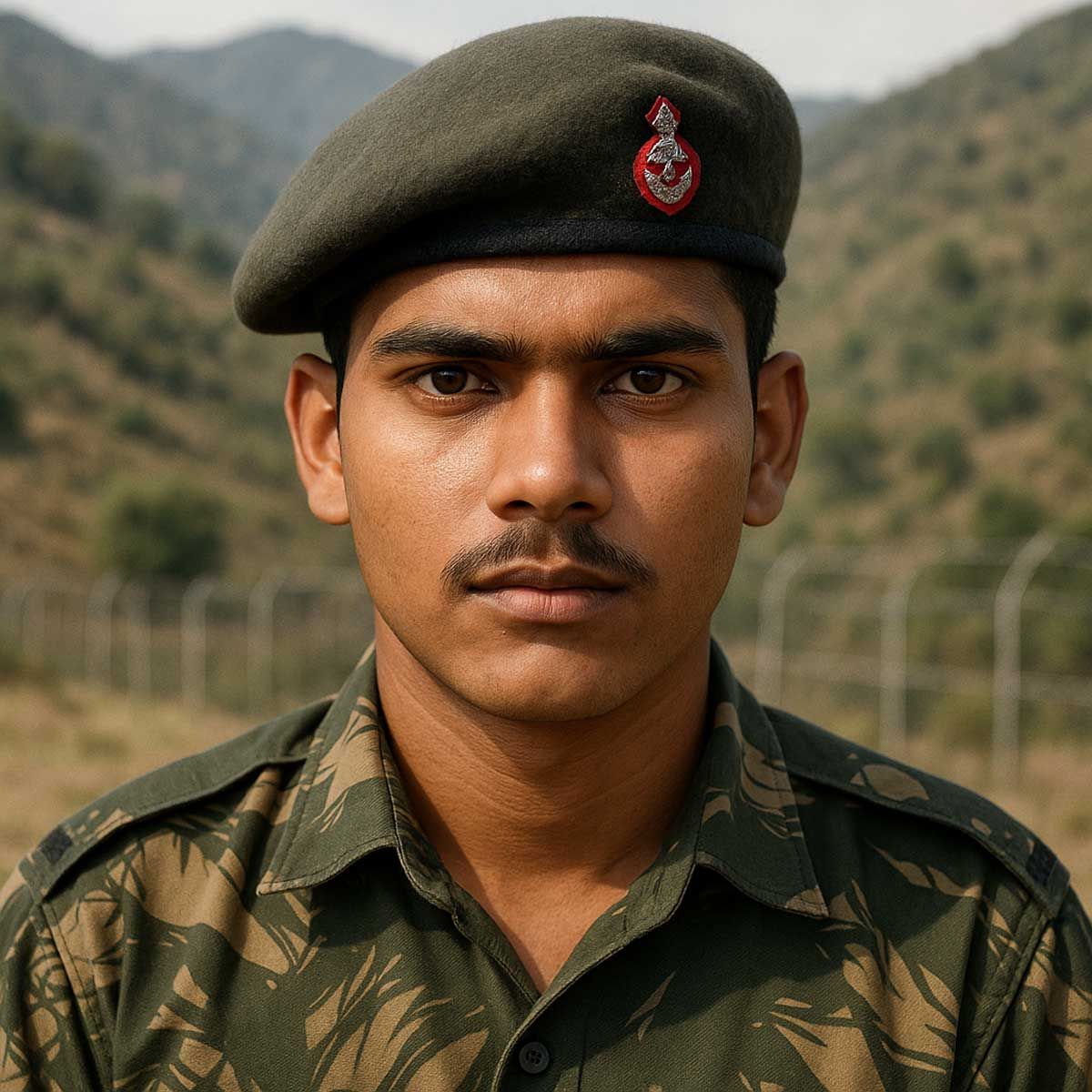More Coverage
Twitter Coverage
Satyaagrah
Written on
Satyaagrah
Written on
Satyaagrah
Written on
Satyaagrah
Written on
Satyaagrah
Written on
JOIN SATYAAGRAH SOCIAL MEDIA
Under a well-articulated attack, over 200 Hindu women were raped and tortured by Muslim men in Bangladesh: HM Amit Shah during CAA bill in 2019 mentioned Bhola violence that had broken the backbone of minority communities
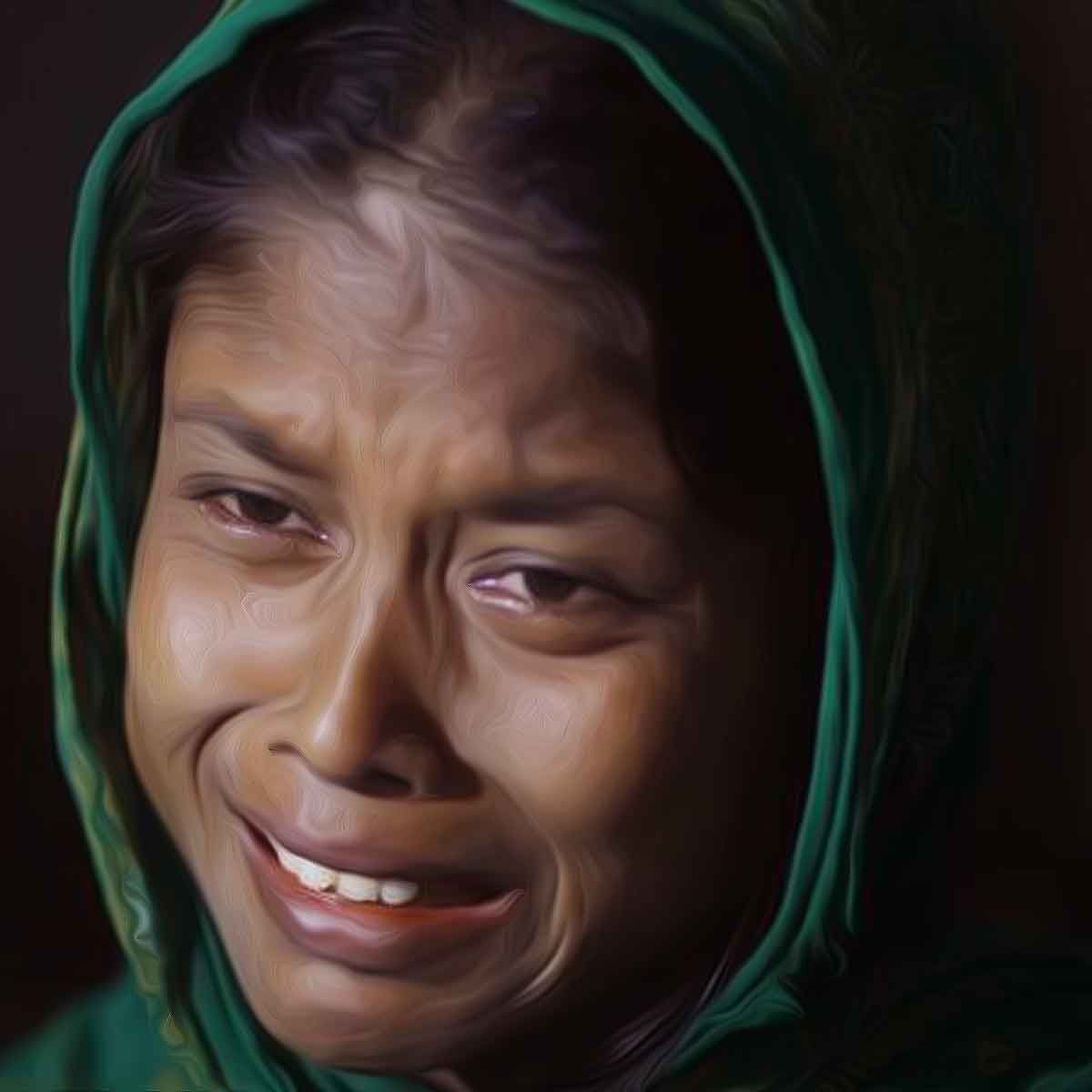
On 9 December 2019, Home Minister Amit Shah had tabled the Citizenship Amendment Bill in the Lok Sabha. During his speech on the bill, the Home Minister highlighted the injustice, persecution, and violence that the minority Hindus, Sikhs, Jains, Buddhists, and Parsis in Bangladesh, Pakistan, and Afghanistan are subjected to.
The Home Minister also mentioned an incident in Bhola, Bangladesh, stating that after the assassination of Bangabandhu Sheikh Mujibur Rehman in Bangladesh, a wave of violence, torture, and persecution against minorities that had started there, had broken the backbone of the minority communities in that country.
Shah added that in Bhola, under a well-articulated attack, over 200 Hindu women were raped and tortured by Muslim men in Bangladesh.
|
The Bhola rape and violence incident that the Home Minister mentioned occurred in 2001, just after the Bangladesh National Party under Begum Khalida Zia came to power. After the election victory, the BNP and Jamat-e-Islami goons wreaked havoc over Hindus in Bangladesh.
In several places, like Bagerhat, Barisal, Bogra, Brahmanbaria, Chitgaon, Fani, Ghazipur, Jesor, Khulna, Munshiganj, Bhola, Narayanganj, and Sirajganj districts, Hindus were targeted in orchestrated attacks by Muslim gangs.
In October 2001, in the Bhola districts, Lalmohan region, Hindus were attacked by Muslims. The attackers rushed into Hindu homes, looted their belongings, cut down their trees, and destroyed their crops. In Bhola’s Char Fasson, BNP-supported Muslims had attacked and raped over 200 Hindu women. The youngest victim was 8. The eldest was a 70-year-old woman.
 2001 post-election violence by Muslims in Bangladesh, via Revolvy.com |
 The Bhola violence and rape of Hindu women as described by Mohammad Badrul Ahsan in The Daily Star, titled “The Night of The Lost Nose-pins’, via hvk.org |
Years later, a Judicial Commission inquiry in Bangladesh had concluded that over 25,000 leaders and local party workers of the then ruling BNP and Jamat-e-Islami were involved in the attack against Hindus and other minorities that had led to hundreds of deaths, and injuries and had forced the Hindus in Bangladesh to flee into India.
Bhola is an island district in southern Bangladesh. The population is 96% Mulsim. Hindus were just 4%. Incidentally, 2001 was not the first time. Hindus were targeted there by Muslims in 1996 too. The purpose of the attacks was to loot their property and force them to flee so the local Muslims get to claim their houses and lands.
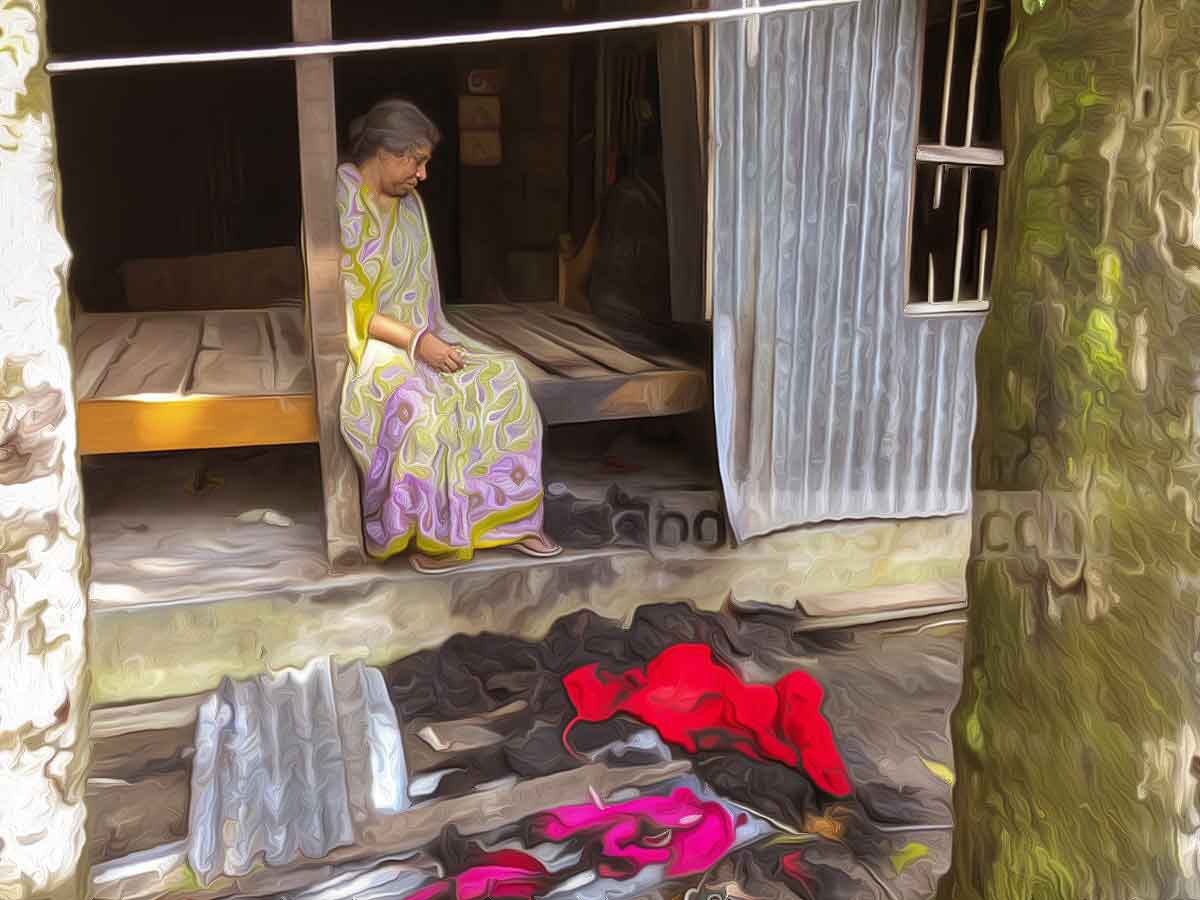 |
This year, in October, a Hindu boy named Biplab Chandra was targeted. His Facebook account was hacked, and ‘anti-Muslim’ posts were shared. When Biplab was at the police station reporting the hacking, the hackers had reportedly called Biplab and asked for ransom. Using the ‘anti-Muslim’ posts as an excuse, Muslims in the area later torched 12 houses of Hindus in the Bohranuddin area in the Bhola district.
Not just the mentioned incidents, Hindus in the Bhola district have been repeatedly subjected to attacks, false accusations, and violence. A report by the Bangladesh Minority Council states that over the past 45 years, a silent ethnic cleansing of Hindus has been going on in Bangladesh.
 Headlines from November 10, 2017, in India Today and November 2016, in Economic Times |
It also says that in rural areas, the minority Hindus face immense pressure to convert to Islam. Rape and forced conversion are being used as a ‘cleansing tool’. Much like the targeted abduction and forced conversion of Hindus in the Sindh province of Pakistan, Muslim hardliners have been waging a war against the minority Hindus in Bangladesh.
It is notable here that targeted rapes of women belonging to minority communities are something consistently seen in radical Islamist violence. Be it Kashmiri pandits, Yazidi genocide by ISIS, the rape gangs of Britain, Cologne attacks in Germany, or the ethnic cleansing of minorities in Pakistan and Bangladesh, targeted rape, sexual assault, and violence against women is one tool that has been consistently used by adherents of radical Islam to propagate their ideology and terrorize minorities.
The CAB tabled by the BJP government aims to provide Indian citizenship to the persecuted minorities from the three neighbouring Islamic countries, Pakistan, Bangladesh, and Afghanistan, who have been staying as refugees in India.
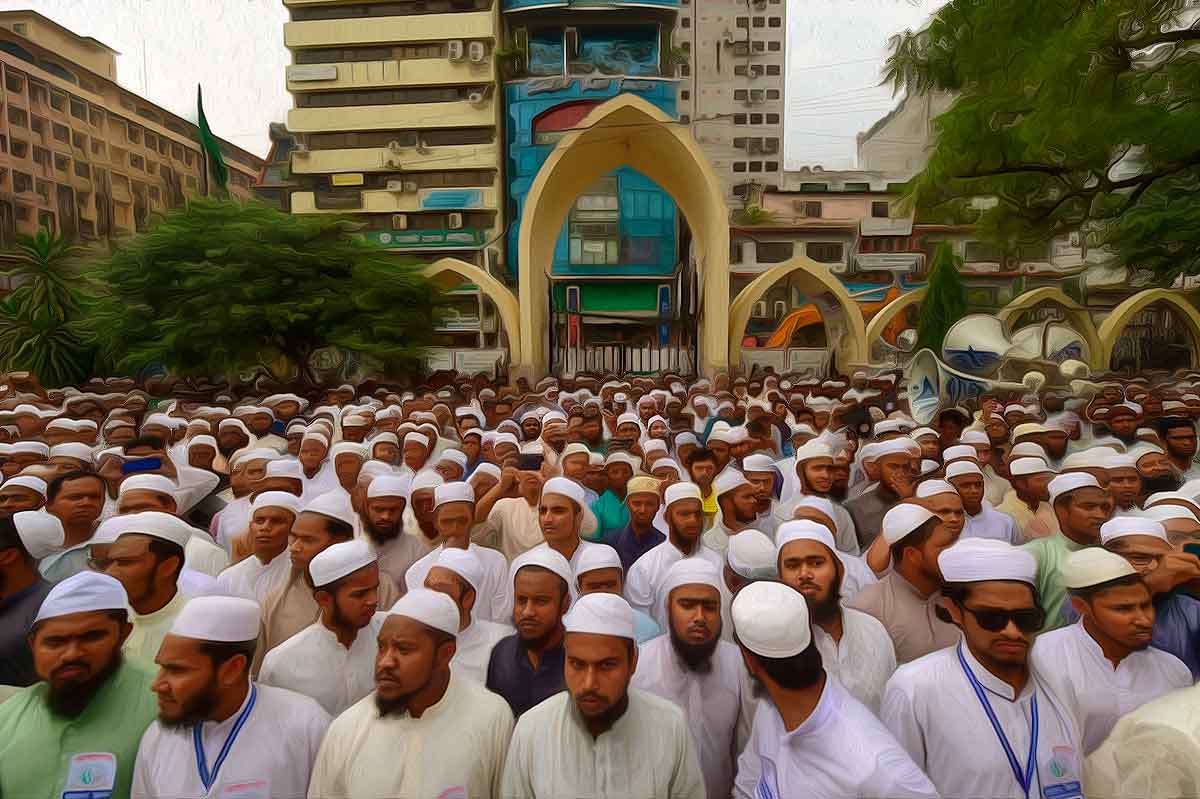 |
Citizenship Amendment Bill – Myths and lies propagated against it, and the facts
As the Citizenship Amendment Bill was passed by the Lok Sabha last night, left-liberal media and opposition parties have gone on an overdrive in spreading propaganda against them. Most oppositions against the CAB are based on lies or poor understanding of the proposed amendment to the citizenship law. Here are some of the baseless complaints made about the CAB and the respective facts.
Citizenship Amendment Bill is against Indian Muslims, they need to get their papers ready to continue living in the country
One of the worst lies being spread is that Indian Muslims need to worry about the bill. The Citizenship Amendment Bill has nothing to do with Indian citizens, Muslim or otherwise, as it seeks to grant citizenship to religious minorities in Pakistan, Bangladesh, and Afghanistan. People belonging to Hindu, Jain, Buddhist, Sikhs, Parsi, or Christian communities from these three countries who have come to India before 2014 for religious persecution and already living in India will be able to apply for citizenship after the amendment is passed. No Indian citizen will be asked to produce any document to prove citizenship after the CAB is passed, it is just false propaganda being spread by some people.
Muslims from other countries can’t become Indian citizens after CAB is passed
CAB is a special one-time measure for religious minorities who have already come to India after facing persecution in the three specified countries. The amendment does not cancel the existing naturalization laws. Any person from any foreign country seeking to be an Indian citizen can apply for the same under the existing laws. There is no bar on Muslims from anywhere in the world to seek Indian citizenship under existing laws, CAB does not prohibit that. They can apply for Indian citizenship under section 6 of the Citizenship Act, which deals with citizenship by naturalization.
Although Muslims from these countries have been excluded from the CAB, it does not mean the door is shut forever for becoming Indian citizens. The points made in the above para apply here also, although they are not given blanket relaxation to apply for citizenship under CAB, the usual naturalization law remains available to them.
Illegal Muslim immigrants living in India will be deported after CAB is passed
CAB gives citizenship to people of six communities from three countries living in India, but it does not deal with the deportation of illegal immigrants. Although it protects Hindus, Jains, Buddhists, Sikhs, Parsis, or Christians who had entered India illegally from deportation by giving an opportunity to apply for citizenship, it does not say anything about deportation as that is the subject matter of another law, the Foreigners Act, not the Citizenship Act which the bill seeks to amend. The process of deporting anyone entering and living illegally in India is an ongoing process, and the CAB does not change that.
Any Hindu can become an Indian citizen after CAB is passed
Hindus, Jains, Buddhists, Sikhs, Parsis, or Christians from only Pakistan, Bangladesh, and Afghanistan, who are already living in India for at least five years can apply for citizenship. It does not give automatic citizenship to Hindus, they must have lived in India for at least five years, and after that, they have to apply for citizenship. It is not particularly biased in favour of Hindus as many are arguing. Six communities from three countries have been given relaxation, for everyone else the normal naturalization law remains applicable. For example, there are lots of Sri Lankan Tamil Hindus living in camps in Tamil Nadu, but they have not been included in CAB. These Sri Lankans had fled the country during the war with LTTE in the 1990s and are living in several camps.
If CAB is about religious persecution, why Shias, Ahmadiyyas, Balochs, and Rohingyas are not included
All these groups are Muslims, they are not recognized as separate religions anywhere in the world. As Muslims, they are not minorities in Pakistan, Bangladesh, and Afghanistan, which are either officially Islamic countries or have a very high Muslim majority. Therefore, it is not possible to include Muslims in the bill as it is specifically made for religious minorities in those countries. Still, if any Muslims are being persecuted in these Islamic countries for practicing their version of Islam, they can apply for asylum in India. India has already provided asylum to Tibetans, and a large number of people from Afghanistan, Sri Lanka, Uganda, etc.
Muslims for Pakistan, Bangladesh, and Afghanistan can’t apply for citizenship or refuge in India
Moreover, Balochs and Rohingyas are not religious groups, they are ethnic groups. Baloch people are not wanting to migrate to India or any other country, they are demanding an independent nation in the Baloch region. Therefore, it does not make sense to include it in CAB. In the case of Rohingyas, although they fled Myanmar after they were allegedly targeted by the military, their situation was not the same as what minorities are facing in the three Islamic countries. Rohingyas were targeted in retaliation after they had attacked people from other communities, including Hindus, in Myanmar. Rohingya groups are conducting terror activities in Myanmar for a long time. Many such terrorists entered other countries along with ordinary Rohingyas, and they remain undetected. Therefore, the Rohingya groups remain a security threat to India, and they can’t be given any blanket relaxation for citizenship.
CAB is against the Indian Constitution as the constitution prohibits discrimination in the name of religion
The constitution of India is for citizens of India, and the CAB is a special provision for people who are not citizens of India. Therefore, it is incorrect to say that CAB violates the constitution. Moreover, our constitution and laws already have several discriminatory provisions. We do not have equal laws for every citizen, the constitution allows different laws for different religions in several matters. We have Hindu Temples under government control but not Mosques or Churches. We have different laws for schools run by Hindus and non-Hindus. Haj subsidies and salaries for Imams but no such facility for Hindus, the list goes on. As the constitution already allows discrimination among even the citizens, it can’t be said that excluding Muslim citizens from Pakistan, Bangladesh and Afghanistan violates the Constitution of India.
People in North East are opposing CAB because it is discriminatory
Although it is true that some people in north-eastern states, particularly in Assam, are protesting against the Citizenship Amendment Bill, their reason is completely different from the left-liberals and opposition parties. People in the northeast are against giving citizenship to illegal immigrants from Bangladesh or anywhere, regardless of religion, and that’s why they are opposing it. People in the northeast don’t want any foreigners to be given citizenship, while outside the northeast the opposition to the bill is over the exclusion of Muslims. Both the groups are actually on completely opposite stands in their opposition to the bill.
References:
opindia.com
 Support Us
Support Us
Satyagraha was born from the heart of our land, with an undying aim to unveil the true essence of Bharat. It seeks to illuminate the hidden tales of our valiant freedom fighters and the rich chronicles that haven't yet sung their complete melody in the mainstream.
While platforms like NDTV and 'The Wire' effortlessly garner funds under the banner of safeguarding democracy, we at Satyagraha walk a different path. Our strength and resonance come from you. In this journey to weave a stronger Bharat, every little contribution amplifies our voice. Let's come together, contribute as you can, and champion the true spirit of our nation.
 |  |  |
| ICICI Bank of Satyaagrah | Razorpay Bank of Satyaagrah | PayPal Bank of Satyaagrah - For International Payments |
If all above doesn't work, then try the LINK below:
Please share the article on other platforms
DISCLAIMER: The author is solely responsible for the views expressed in this article. The author carries the responsibility for citing and/or licensing of images utilized within the text. The website also frequently uses non-commercial images for representational purposes only in line with the article. We are not responsible for the authenticity of such images. If some images have a copyright issue, we request the person/entity to contact us at satyaagrahindia@gmail.com and we will take the necessary actions to resolve the issue.
Related Articles
- "अब बस, है तो है": In Bandal Village, Bangladesh, 25 Hindu families face severe hardships & isolation as Sohail Hazra builds a house on their only road, blocking emergency medical access & threatening their safety, leaving the community in a state of fear
- "मेरा मुल्क, मेरा देश, मेरा ये वतन": In Tanti Bazar, Bangladesh, Mohammed Hridoy, and Mohammed Jibon attacked a Durga Puja mandap with a petrol bomb, stabbing devotees when stopped, as Bijoy Shah clarified the attack and robbery were separate incidents
- Despite immense sacrifice by Hindu community in the liberation war they are subjugated denominations in the country. Bangladesh seized 26 lakh acres of land from Hindus under black law of “Enemy Property Act”
- "Whispers of death": In October 1990, 26 months before Karseva, Bangladeshi media spread a rumor that the disputed Babri structure had been demolished in India. The aftermath? 3,500 temples razed, and 2,400 Hindu women brutally raped
- 23 Jan to 29 Jan - 2022 - Hindus under attack: Bulletin roundup of persecution, discrimination, and hate crimes against Hindus
- "हाहाकार": Amid ongoing persecution, Hindu youth Sudeb Halder hacked to death, activists say he was murdered for being Hindu; 205 temple attacked, idols vandalized, ISKCON suppressed, blasphemy charges target Hindus under Yunus's interim rule
- "श्रापित देश": In Khulna, Bangladesh, Hindu boy Utsab Mandal killed by a Muslim mob over blasphemy accusations, with army and police present, confirmed dead by a mosque mic asking the mob to go home, local media deleted reports after video went viral
- Death penalty to Mohammad Major (48) for raping a 6-year-old Dalit girl in Araria by POCSO court: Trial completed in 4 days, Special judge also directed to pay compensation of Rs 10 lakh to the victim, Bihar
- Angered by the rejection of his love proposal a mohammedan Azhar slit the throat of a 23-year-old Hindu girl Anusha in Hanamkonda, Hyderabad: Similarly, Asif Mohammed murdered Prachi Rana in Himachal
- West Bengal resident Ankita has filed a complaint with the cybercrime division in the case of sexual harassment of Hindu women, whose pics were pornographically morphed for ‘stud Muslim men’
- “We are preaching hope, standing on the piles of bones of the past”: Fall in Bangladesh’s Hindu population confirms their genocide, total population of the country has more than doubled over 50 years, but that of Hindus has dropped by around 7.5 million
- Rape accused Dilshad used to torture the family after getting out on bail: Minors' father a former BSF Jawan Bhagwat Nishad shot dead the accused in the Court
- "When life gets hard, try to remember: the life you complain about is only a dream to some people": Islamists forcefully occupied houses of Santal Hindu community in Dinajpur of Bangladesh and forced them to spend their days in other people’s backyards
- Muslim-owned restaurant's Hotel Manager Manzoor Ahmed despite clear instructions served beef to Hindu customers Supan Pal and his 12 friends celebrating a birthday party, arrested: Bangladesh
- "बँटवारा": Arfa Khanum Sherwani calls for Sir Syed Ahmed Khan’s leadership, sparking controversy as Khan, founder of AMU and proponent of the Two Nation Theory, fueled the Hindu-Muslim divide with Islamists aiming to make India an Islamic nation by 2047





















